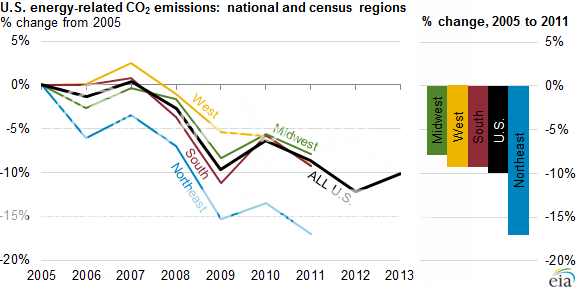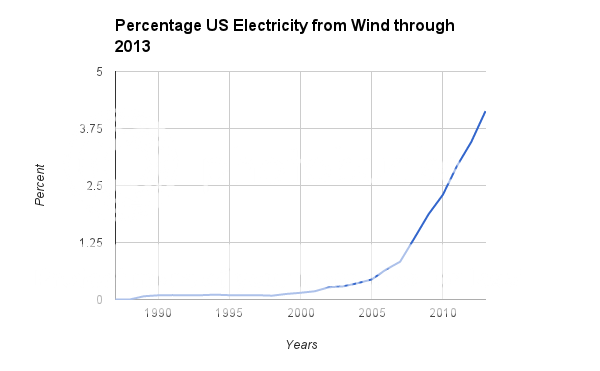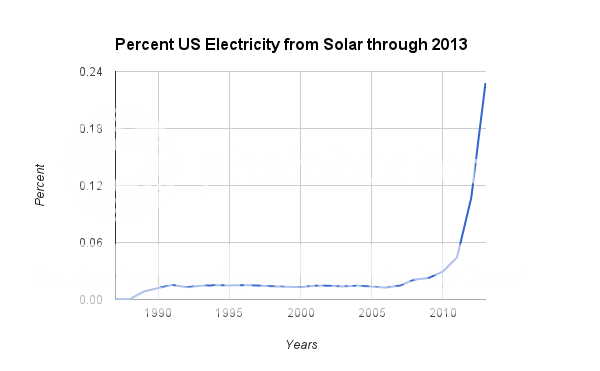Now, what are our odds?
Let me restrict things to the US electricity for the moment. One reason is that the US is among the world's worst on a per capita CO2 basis. Another reason is I am much more familiar with US data.
I'm willing to assume that some countries won't do their share so in the US we probably need to aim for the 70% rather than 40% end.
We've started making progress since 2005. We've knocked off the first 10%.

That means that in order to hit the 70% mark by 2050 we need to average a "1.7% per year" shift from fossil fuels to renewables. Doable? In 2012 non-hydro renewables produced 3.46% of all US electricity and in 2013 they produced 4.13%. That's a 0.67% swap, short of 1.7% but installation rates for renewables are increasing and prices falling.


In 2011 and 2012 the Power Purchase Agreement (PPA), selling price for wind averaged $0.04/kWh for the US. We have preliminary, unconfirmed data that says the PPA dropped to $0.021/kWh in 2013.
DOE "2012 Wind Technologies Market Report"
http://www1.eere.energy.gov/wind/pdfs/2012_wind_technologies_market_report.pdfWind - $0.021/kWh average 2013 PPA. Unconfirmed number but from a staff scientist at the Lawrence Berkeley National Laboratory.
http://www.greentechmedia.com/articles/read/The-Price-Gap-Is-Closing-Between-Renewables-and-Natural-GasLower prices will drive installation rates higher.
Solar prices are also plummeting. Solar PPAs are now being signed for $0.05/kWh in the SW.
http://reneweconomy.com.au/2013/big-solar-now-competing-with-wind-energy-on-costs-75962EOY 2013 solar prices from Greentech Media's research arm reported the average cost for US solar, all sizes at $3.04/W. Residential $4.59/W. Commercial $3.57/W. Utility Scale $1.96/W
The year on year average price drop was 15%, Residential was down 8.8%, Non-residential 16.3% and Utility 13.7%.
Those sorts of cost drops are expected to continue over the next few years as the installation industry matures and soft costs drop.
Over the next 35 years many of our coal plants will have to be replaced. The average lifespan of a US coal plant is about 40 years. That's capital investment that will have to be made and it's very unlikely we will replace coal with coal. We've pretty much quit building coal plants and are likely to based on cost alone.

Now, does that mean we can relax and let market forces save us? That would be irresponsible, IMO. The responsible path would be to push to get to 70% years sooner. But, to me, it says that meeting the IPCC top end goal with electricity in the US is doable.
